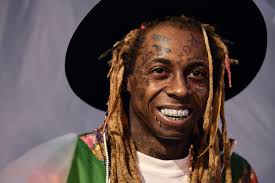It has been an interesting week to be a rap fan. The progression of social movements over the last decade, most importantly Black Lives Matter (BLM), has led to conversations within the rap and hip-hop community about how to speak on racial injustice while maintaining a public platform as an entertainer and an artist. To simplify the deeply complex structures that uphold racism would do a disservice to this ongoing conversation.
One person who prefers to simplify complex problems is former president Donald Trump. Never a proponent for any kind of justice that doesn’t directly service his needs, Trump has done the performative over the substantial. In the tradition of an outgoing administration Trump has pardoned and commuted prisoner sentences. Several rappers have been pardoned. It could be suggested that their pardon is a barely concealed rebuttal to the accusations of racism that have dogged Trump.
This is because Trump has a solid past of racist comments and actions. In the 1970’s, he was sued by the city of New York for refusing to lease out homes to African American families. In the Central Park Jogger case of the early 90’s, he called for the death penalty of the five innocent boys who were wrongfully accused of assaulting a jogger. Four of the boys were African American and the other a Latino. His first presidential campaign speech denigrated Mexican people as “rapists” and “murderers”. While in office he told four female congresswomen of colour, all US citizens, to “go back home”, not so much a racist dog-whistle than a bullhorn.
In his last days in office, rappers Lil Wayne and Kodak Black were pardoned and released from prison. Lil Wayne was initially convicted for weapons possession; Kodak Black was convicted for falsifying information used to attain firearms. (Kodak Black still faces criminal sexual misconduct charges in another case.)
Why have these men been released while so many people languish in prison for lesser crimes? The United States private prison industry effectively has its own economy. The War on Drugs, with the attendant mandatory minimums and three strikes measures, has made many people serve long sentences for non-violent drug offences. These measures disproportionately affect the African American population. A mitigating factor in how the prison industrial complex replicates itself is poverty. Urban towns and cities are massively underfunded in terms of education, healthcare, and governmental infrastructure.
What the rappers who received clemency have in common is their wealth and fame. Their music and lyrics celebrate the rich lifestyle they have attained, in the light of their disadvantaged upbringing. Lil Wayne is the prime example of this. He was born to a young, poor mother. His stepfather was murdered when Wayne was 14, leaving his family devastated both emotionally and financially.
Wayne found his fame and fortune in rap, being signed by Birdman to Cash Money Records at only 12. Within that same year, Wayne accidentally shot himself with a gun. The police officer called to the scene swiftly brought him to the hospital. Wayne refers to this incident when explaining in interviews why he does not fully support BLM.
 Leaving beside the fact that a cop bringing an injured child to safety should be the norm and not a novelty Wayne’s support for police may explain the photo-op he had with Trump in late 2020. The photo, showing the two men smiling and giving the thumbs up sign, was not received well by the hip – hop community or Wayne’s fans. More than one person jokingly wondered if Wayne was buttering Trump up for a pardon. Soon the answer was clear.
Leaving beside the fact that a cop bringing an injured child to safety should be the norm and not a novelty Wayne’s support for police may explain the photo-op he had with Trump in late 2020. The photo, showing the two men smiling and giving the thumbs up sign, was not received well by the hip – hop community or Wayne’s fans. More than one person jokingly wondered if Wayne was buttering Trump up for a pardon. Soon the answer was clear.
Trump caters for sycophants and the wealthy. In this photo-op, Wayne was both. As long as wealth is used as a bargaining chip over racism, facetious actions such as a thumbs up photo will occur over concrete forms of deconstructing systematic oppression.
